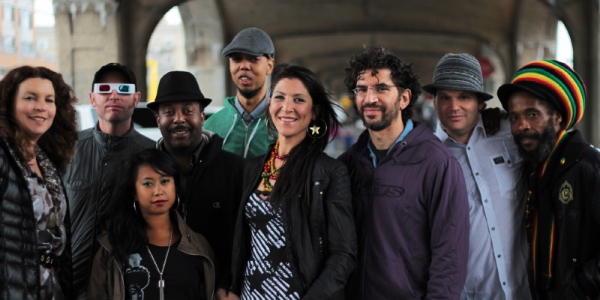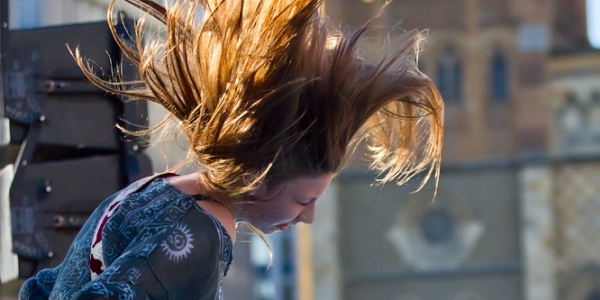“There are a lot of people that think what we do is sacrilegious and that we shouldn’t be covering these classic albums,” says renowned reggae producer and Easy Star All Stars co-founding member Michael Goldwasser. “A lot of purists say, ‘You can’t re-interpret Pink Floyd, man’, but they’re probably not musicians – they’re just self-righteous fans. We find that most musicians are open-minded and like to experiment with music. We believe that nothing is sacred.”
Since Easy Star All-Stars’ previous efforts have included Dub Side Of The Moon, Radiodread (Radiohead’s OK Computer) and Easy Star’s Lonely Hearts Dub Band, it might not come as a huge surprise that the outfit opted to attempt MJ’s 1982 classic. However, take a closer look and you’ll see that Thrillah is the first time the group has taken a step outside the rock genre. Michael says this was a big motive for choosing the project.
“We wanted to go down the R&B path because American R&B was instrumental in the development of Jamaican music even before reggae, with ska in the ’60s all the way through to today. It seems that whatever has been going on in Black American music has very much informed reggae and Jamaican music. This sometimes seems to get lost on people, especially the American reggae bands who are influenced by roots artists like Bob Marley and include aspects of rock in their music.
“It’s not like we’re trying to teach people a lesson; we’re hoping that people will hear what we’ve done and will see the link. It might get people to think more about the tradition and make the connection between Jamaica and the US.”
Michael also looked to Africa for inspiration, something which is especially notable in the eight minute afrobeat version of album-opener Wanna Be Startin’ Somethin’.
“I chose an afrobeat arrangement for the first song because I feel that Africa is the heart of a lot of Black American and Jamaican music. For me it was about drawing those connections and hoping that the listener would understand,” Michael says.
If you take a glimpse through the group’s back catalogue, it is easy to assume that Easy Star All-Stars have merely chosen bulletproof classic albums to cover, however Michael explains that just deciding which album to approach is a painstaking process in itself.
“We take a very long time deciding which album to do. We try to choose an album where we feel every single song is great or is interesting in some way. Seven of the nine songs on Thriller were phenomenally successful singles, so that has to say something about the quality of the album.
“I’ll often wind up doing some preliminary work before we’ve 100 percent decided on an album, just to see if it can work or not. Sometimes what you’ll hear on the record is the third arrangement of the song I’ve made. Every time we do one of these tribute albums I spend at least a year and a half in the studio. I spend months just listening to the original arrangements and scrutinising the details before I come up with the reggae arrangements. It’s a very long and involved process, but I feel like I’d be doing a disservice to the original artist and our listeners if I rushed it.”
These listeners are inevitably going to be a tricky bunch to impress – a large contingent will be dedicated admirers of the original album hoping that their beloved has been done justice, and another proportion will be hardcore reggae fans who expect authenticity from the end product.
“I think that most traditional reggae fans hear our stuff and they get it. With Thrillah I tried to envision what it would sound like if Michael Jackson recorded it in Jamaica in the late ‘70s and early ‘80s. With fans of these classic albums, only the purists are hard to please because many of them have already decided they’re not going to like it before they hear it. For the rest, because of publishing concerns we really can’t change the songs too much in terms of lyrics and melody, so everything is still recognisable. Many of them say that when they go back and listen to the original recording it sounds more fresh and new.”
BY CALLUM FITZPATRICK







